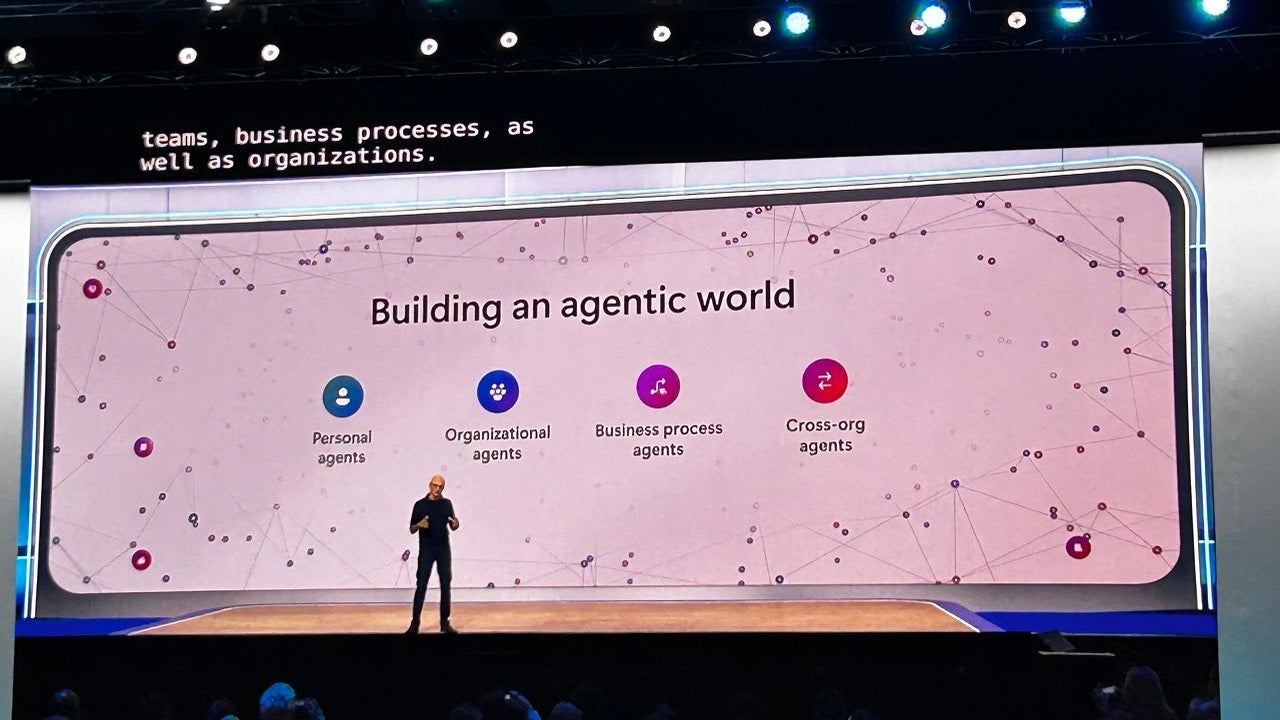Microsoft wants to launch new AI agents that could change everything in your company

- November 11, 2025
- Updated: November 11, 2025 at 3:50 PM

Microsoft has revealed some preliminary details about a “new class of AI agents” that, according to the company, will be able to enhance the existing workforce by taking over some of the more repetitive administrative tasks.
The upcoming “agentic users” will be precisely that, users, with their “own identity” and “dedicated access to the organization’s systems and applications”.
Microsoft also promises that agentic users will be able to “collaborate with humans and other agents,” diversifying the workforce beyond humans.
Agentic users, the future of AI?
According to what is stated in the Microsoft 365 roadmap, under the title “Microsoft Teams: Discovery and creation of agent users from Teams and M365 Agent Store,” the update in development refers to a release in November 2025.
“These agents can attend meetings, edit documents, communicate via email and chat, and perform tasks autonomously,” Redmond added.
Perhaps, then, the vision of the future recently declared by Salesforce CEO Marc Benioff makes sense after all: after stating that today’s CEOs will be the last to manage only humans, all future generations will also have the task of managing AI agents as part of their workforce.
The Microsoft licensing specialist, Rich Gibbons, suggests that these Agentic users could have their own identity within the organization’s directories through Entra ID or Azure ID, even their own email addresses and Teams accounts.
Gibbons also notes that separate licenses for Agent 365 may be necessary, although it is unclear how these will coexist with the use of Copilot credits. Perhaps Copilot will be distinguished as a human aid, while Agentic users become a completely separate category.
With Microsoft Ignite around the corner, from November 18 to 21, 2025, Agentic users may then take the plunge, but for now, we can only imagine what this new type of hybrid workplace might be like.
What is agentic AI or agent AI?
Agentive AI is an advanced form of artificial intelligence focused on decision-making and autonomous action. Unlike traditional AI, which primarily responds to commands or analyzes data, generative AI can set goals, plan, and execute tasks with minimal human intervention.
This emerging technology has the potential to revolutionize various sectors by automating complex processes and optimizing workflows.
Generative AI vs Agent AI
Although both agent AI and generative AI are forms of artificial intelligence and can be used together, they have distinct functionalities.
Generative AI, as its name suggests, focuses on creating new content, such as text, images, code, or music, based on requests. LLMs are the core of generative AI, and value is generated from what the model can do and from simple extensions of LLM capabilities. For example, you can generate or edit content, and even make simple function calls and chain several options.
The agentive AI is a subset of generative AI that focuses on the orchestration and execution of agents that use LLMs as a “brain” to perform actions through tools. Agentive AI goes beyond content creation and function invocation, as it executes actions in the underlying systems to achieve higher-level goals.
For example, generative AI could be used to create marketing materials, while agentive AI could be used to deploy those materials, monitor their performance, and automatically adjust the marketing strategy based on the results. In this way, agentive AI can use generative AI as a tool to achieve its goals.
Journalist specialized in technology, entertainment and video games. Writing about what I'm passionate about (gadgets, games and movies) allows me to stay sane and wake up with a smile on my face when the alarm clock goes off. PS: this is not true 100% of the time.
Latest from Chema Carvajal Sarabia
- The U.S. spy satellites from SpaceX are sending wrong signals
- Google has just sued the Chinese hacker group that stole 1 billion dollars from millions of its users
- Valve's new console, the Steam Machine, is 6 times more powerful than a Steam Deck
- Funko is on the brink of ruin: have we grown tired of the bobblehead dolls?
You may also like
 News
NewsRiot Games is getting serious: from now on, if you get banned, you will be banned from all their games at the same time
Read more
 News
NewsIt returns to Netflix with its third season an anime that pits Jack the Ripper against Thor in incredible epic battles
Read more
 News
NewsChinese hackers are starting to use AI to take control of your computer
Read more
 News
NewsThe director of the original movie Airplane! is not very happy with Seth MacFarlane's work
Read more
 News
NewsThe director of RRR, the most successful Indian film in recent years, unveils his new feature film that has cost 120 million dollars
Read more
 News
NewsUbisoft introduces AI into the workflow of its video games, but it "slips away" in the final version of one of its games and all hell breaks loose
Read more